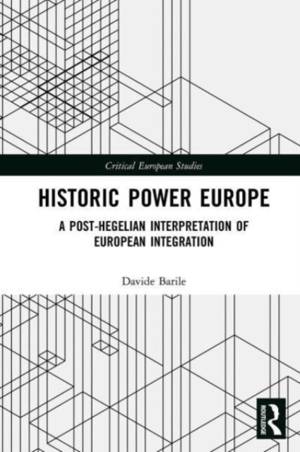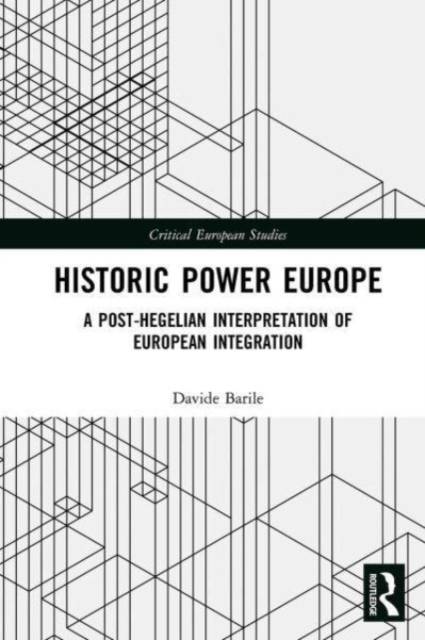
- Retrait gratuit dans votre magasin Club
- 7.000.000 titres dans notre catalogue
- Payer en toute sécurité
- Toujours un magasin près de chez vous
- Retrait gratuit dans votre magasin Club
- 7.000.0000 titres dans notre catalogue
- Payer en toute sécurité
- Toujours un magasin près de chez vous
Description
This book proposes a new theoretical framework to move beyond the traditional tenets of modern international relations theory to investigate European integration and shed light on current events.
Based on contemporary analyses, Hegel's political philosophy, and the fundamental role of historical interpretation, this book addresses the institutional dynamics as well as the discursive practices behind both the Eastern enlargement and the current critical situation. Looking back in particular at European integration in one of its most significant events, namely the enlargement of the European Union to include former Socialist countries, it offers a unique conceptualisation of the nature and limits of European integration and for understanding the current crisis between Brussels and the Visegrád countries, 30 years since the revolutions of 1989.
This book will be of key interest to scholars and students of European integration, European politics and history, and political theory and philosophy.
Spécifications
Parties prenantes
- Auteur(s) :
- Editeur:
Contenu
- Nombre de pages :
- 192
- Langue:
- Anglais
- Collection :
Caractéristiques
- EAN:
- 9781032475097
- Date de parution :
- 21-01-23
- Format:
- Livre broché
- Format numérique:
- Trade paperback (VS)
- Dimensions :
- 156 mm x 233 mm
- Poids :
- 299 g

Les avis
Nous publions uniquement les avis qui respectent les conditions requises. Consultez nos conditions pour les avis.






